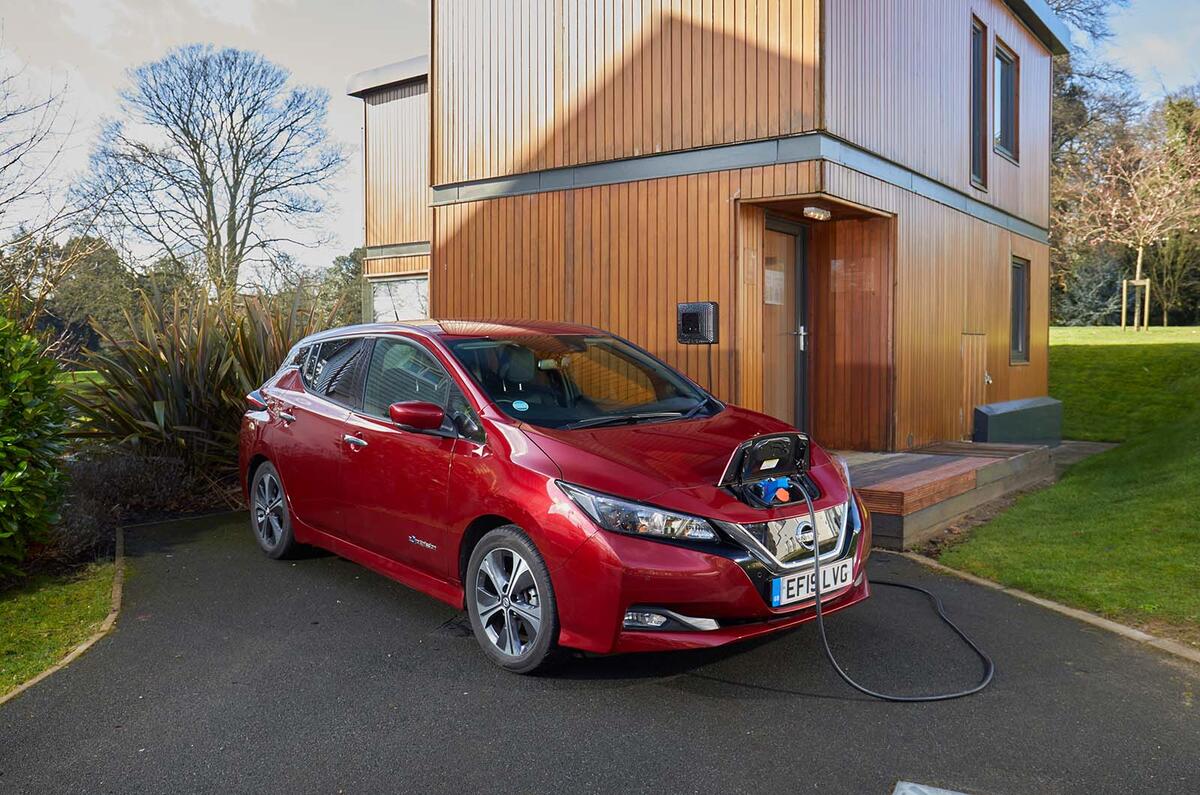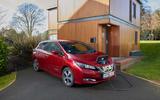With the spectre of colossal electricity bills looming over us like some sort of fully charged Grim Reaper, there’s plenty of talk about how the cost benefits of running EVs might be about to suddenly disappear.
But quite apart from the fact that fossil fuel prices will only keep increasing, could there be more to the energy benefits of running an EV than merely the cost of a unit of energy?
The demand for domestic solar systems is ramping up to the extent that waiting lists for reputable installers are growing fast.
With a cheap (or in Scotland, government backed interest-free) loan, the cost of installing a solar system with battery storage could soon fall below that of paying household energy bills. Systems fitted by certified installers are also VAT-free.
Given that the majority of ‘refuelling’ for EVs is done at home, the value of installing a hybrid solar system for EV owners suddenly becomes even more attractive. It’s the equivalent of a conventional car owner having their own oil refi nery in the back garden, only more discreet.
Today’s domestic solar systems are smart, so energy generated is used to supply the house first, then charge the home system battery to supply demands after sundown – and then, if both of those demands are met, any extra can be sold back to the grid under the Smart Export Guarantee scheme. It’s better than nothing but the SEG rate is small compared with the tariff paid, so the most cost-effective method is to consume all the energy the system generates.
That’s where the EV comes in. A 5kWh lithium ion battery storage module for a domestic solar hybrid system costs in the region of £3250. But a typical EV sitting in the drive with a 64kWh battery will usually have plenty of valuable capacity sitting there doing nothing.
Charging in daylight hours makes sure all the home-generated energy is put to the most cost-effective use if an EV is plugged in whenever it’s at home instead of only when the battery is low. Owners of EVs with vehicle-to-load systems like Hyundai’s Ioniq 5 could also make use of power stored during the day to avoid drawing from the grid.
The whole equation would be even more effective had vehicle-to-grid (V2G) ever taken off. For example, home owners would have more choice as to how the investment in a solar hybrid system could be split and whether to spend more on panels and less on battery storage.
The Electric Nation V2G trial, run over two years by CrowdCharge, Western Power Distribution and partners, established that EV owners taking part were able to reduce their home energy bills through their EVs sharing energy with the grid.
According to Electric Nation, the barrier to V2G’s commercialisation right now is that it’s supported by only the Chademo connection protocol and, as far as new cars are concerned, that means only the Nissan Leaf. CCS, the most widely used system, is expected to become compatible by 2025.
What else is going on?
Swiss firm Synhelion has begun construction work on a plant to produce synthetic fuels using solar heat. Going by the name of Dawn, the plant – located at Brainergy Park in Jülich, Germany – consists of a field of moving mirrors tracking the sun, focusing its rays on a solar receiver, which generates 1000deg C. There’s no date for delivery yet but the first fuel produced will be aviation kerosene destined for airline company Swiss.







Join the debate
Add your comment
Funny how these companies push solar panels and batteries which materials and manufacturing occurs in China. China make 80% of the World's solar panels and wind turbine blades. Meanwhile they don't care about Climate Change and continue to build 80 new coal power stations this year and dig an additional 300 million tonnes of coal this year as well. Talk about giving your means of generating electricity to a foreign power who wants to rule the World. Madness! We have plenty of gas and coal under our feet in the UK that will last for at least 100 years maybe we should use it.
Biggest wind turbine maker is Danish with 20 percent of the market alone, then siemens with 10 percent etc. As to the suggestion of giving power generation to china because you install a wind turbine in the North sea that was made in China, well that's laughable.
But then their main interest is January 2025, not long term sustainable solutions. That's what you get from a populist government.
You could say the same about Governments across the EU which you keep banging on about here all the time. Also populist isn't a bad word because it just means the majority of the voting population voted for them. How's populism bad?
When you're in the minority.
By the looks of things, the majority will become minority fairly soon. You will then cry the new majority has to listen to the minority but you'll reap what you sow.
Populism doesn't mean people voted, it means claiming you care for people's needs. Check your dictionary.
Cannot understand why a newly build house that ends up on the market for 400k doesn't have to have 4k's worth of solar panels installed during the build process. Should be possible for majority of new builds.
That sounds just like the motoring hacks criticism of those companies who offer a 3yr warranty versus those who offer a 5yr warranty. Every car comes with a 5yr warranty if you want, it's just you have to pay a few hundered pounds extra.
So you can have a new £400k house with solar panels but it will cost you £404k. Or are you saying you want solar panels for free?
PS - those cars with 'free' 5yr warranty - the extra 2yr is already built in to the price. It certainly ain't free.
Poor argument from someone who obviously knows little about building. It's alot cheaper to install a standard solar installation during the initial build than rip out an existing boiler etc, hack the roof apart from an existing 400k house. No one said it was free by the way but with the enivironment and heating costs going balistic it's certainly a wise move.